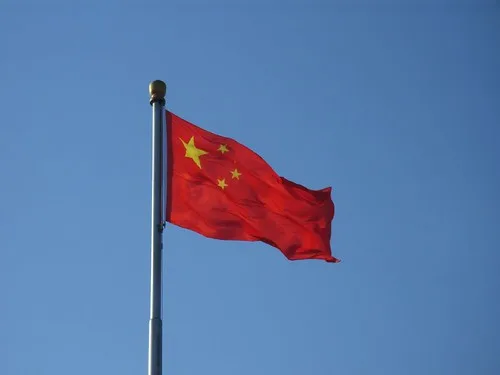
Shehbaz Sharif Nominated as Pakistan’s Prime Minister in a Surprising Political Shift
In a significant turn of events that has reshaped Pakistan’s political landscape, the Pakistan Muslim League-Nawaz (PML-N) announced on Tuesday night its decision to nominate Shehbaz Sharif as the candidate for Prime Minister, bypassing the party’s supremo and three-time former premier, Nawaz Sharif. This strategic move places Shehbaz Sharif at the forefront of becoming Pakistan’s next Prime Minister as the coalition of leading political parties, spearheaded by PML-N, is poised to secure a simple majority required for government formation after a closely contested election resulted in a split mandate.
Shehbaz Sharif, aged 72, previously served as the Prime Minister following the ouster of Imran Khan’s government in April 2022. His nomination was confirmed following a consultative meeting with key political figures, including Asif Ali Zardari of the Pakistan Peoples Party (PPP), Khalid Maqbool Siddiqui of Muttahida Qaumi Movement Pakistan (MQM-P), and Shujaat Hussain of Pakistan Muslim League-Quaid (PML-Q). The meeting underscored a united front to accept the election’s split mandate and to work collaboratively towards government formation.
Marriyum Aurangzeb, the Information Secretary of PML-N, revealed that Nawaz Sharif had personally nominated his younger brother for the Prime Minister’s role, emphasizing the party’s commitment to navigating Pakistan out of its current crises. Additionally, PML-N’s Senior Vice President Maryam Nawaz was nominated for the post of Punjab’s Chief Minister, indicating a significant reshuffling in the country’s political and administrative leadership.
Also Read: Former Indian Envoy Criticizes Pakistan’s Parliamentary Elections as “Selection” by Army
The coalition, comprising six parties including PML-N, PPP, MQM-P, PML-Q, Istehkam-e-Pakistan Party (IPP), and Balochistan Awami Party (BAP), collectively won 152 general seats. This count, bolstered by the addition of reserved seats for women and minorities, comfortably surpasses the threshold of 169 seats required to form a government at the Centre, showcasing the coalition’s strong parliamentary presence.
Shehbaz Sharif emphasized the new government’s focus on addressing Pakistan’s mounting challenges, particularly stabilizing the economy. He expressed optimism about the coalition’s capacity to enact meaningful change, citing the nearly two-thirds majority of the parliament that the alliance enjoys. The collaboration among these parties is seen as a crucial step toward uniting the nation’s leadership to confront and resolve pressing issues.
The PML-N’s close ties with the Pakistan Army are also believed to play a pivotal role in the current political dynamics, potentially influencing the governance and policy directions of the forthcoming administration.
Also Read: Terrorist Attack in Srinagar Leaves One Dead and Another Injured
In response to these developments, Imran Khan’s Pakistan Tehreek-e-Insaf (PTI) party, which secured a significant number of seats, urged the PML-N to gracefully accept defeat. PTI’s leadership, asserting their electoral success, hinted at announcing their prime ministerial candidate shortly, signaling ongoing political negotiations and contestations.
The formation of a coalition government, as articulated by Asif Ali Zardari alongside Shehbaz Sharif, aims not only to rescue the country from its economic predicament but also to foster reconciliation across the political spectrum, including with PTI.
As Pakistan stands at a critical juncture, the nomination of Shehbaz Sharif as Prime Minister and the ensuing coalition government represent a new chapter in its political saga. With promises of economic revival and national unity, the country anticipates the official transition to a new government by the end of the month, marking a pivotal moment in Pakistan’s journey towards stability and prosperity.
PPP Chooses Not to Pursue Prime Ministerial Candidacy Amid Coalition Efforts
In a significant political development, Pakistan Peoples Party (PPP) Chairman Bilawal Bhutto Zardari announced during a press conference following the Central Executive Committee (CEC) meeting that his party did not secure a mandate to form a government in the federation. As a result, Bilawal stated that he would not put himself forward as a candidate for the Prime Minister of Pakistan, highlighting a strategic shift in the PPP’s approach towards government formation post-election.

The PPP’s decision comes in the wake of an election that produced a split mandate, complicating the landscape for forming a stable federal government. Despite the division, Bilawal mentioned that the Pakistan Tehreek-e-Insaf (PTI) had declined a coalition with the PPP, leaving the Pakistan Muslim League-Nawaz (PML-N) as the sole party extending an invitation to the PPP to join the government.
To navigate this complex political scenario, the PPP has resolved to form a committee dedicated to engaging with other political entities to facilitate government formation and ensure political stability. Bilawal articulated the party’s stance of not participating directly in the federal government nor seeking ministries within such an arrangement. This decision underscores the PPP’s commitment to avoiding further political turmoil and addressing the country’s ongoing crisis through collaborative efforts.
Also Read: Former Indian Envoy Criticizes Pakistan’s Parliamentary Elections as “Selection” by Army
Bilawal emphasized the PPP’s election campaign, which focused on issues of public importance, expressing a desire to restore political stability and mitigate the current environment of political toxicity. The party is prepared to support crucial votes, including the candidacy for the Prime Minister, on an issue-by-issue basis to aid in government formation and the restoration of political harmony.
In response to inquiries about potential candidates for the presidency, Bilawal indicated that his father, former President Asif Ali Zardari, could be a contender, citing his capability to navigate the nation through its current challenges. However, Bilawal also acknowledged the PPP’s previous uneasy alliance with the PML-N, noting that past concerns raised by PPP leaders were not adequately addressed during the tenure of their coalition government.
Also Read: Shoaib Akhtar’s Assessment of Rohit Sharma’s Batting Mastery Against Pakistan
Amid discussions of a possible new election due to the split mandate, Bilawal firmly stated the parliament would be established following the current elections, reassuring the public of the PPP’s dedication to fulfilling its responsibilities.
On the other hand, the PTI, led by Imran Khan, is exploring alliances with two right-wing religious parties, Majlis Wahdat-e-Muslimeen (MWM) and Jamaat-e-Islami (JI), to form its government at the federal level and in the provinces of Punjab and Khyber-Pakhtunkhwa. Despite these efforts, it remains uncertain if such coalitions will provide the PTI with sufficient strength to secure government formation in these crucial areas.
The PTI’s choice of partners, particularly the selection of MWM and JI, both of which have distinct ideological stances and limited electoral success, may provoke further analysis and critique from political adversaries. This strategy also highlights the ongoing challenges and negotiations inherent in Pakistan’s fragmented political landscape following the elections.
As the country navigates this uncertain political terrain, the actions and decisions of its major political parties will be instrumental in shaping the future of Pakistan’s governance and addressing the pressing needs of its populace.

